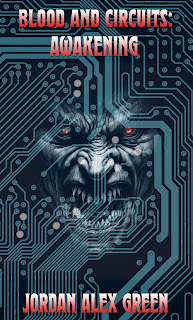When to ignore science.
You’re writing a tale about a band of teens turned into miniaturized humans, and there’s a scene where they’re sitting around a fire made from matches, watching as the night wears on. And suddenly, you say: wait a minute! Fire doesn’t last that long! A bunch of matches would burn for only a few minutes tops!
Yes. And? If you want to go all hard sci-fi, miniaturized people shouldn’t exist. For that matter, even many “hard” sci-fi settings include things like FTL and generated gravity, usually covered with some comments about how theories in the present turned out to work. But in truth, it’s likely that FTL is just as much fantasy as Harry Potter.
None of which matters. If people are buying your book about tiny people, they’re buying into the fantasy. As long as you’re consistent, only a very few are going to start muttering about how this couldn’t really happen. The rest will roll their eyes and say: Duh, if we wanted reality we’d be watching CNN.
To use an example of this: The Cold Equations. Not a single engineer is going to say: that’s realistic. Not even in the 1950s. If the safety margins were that narrow, then the ship would be behind a bank vault, not a little door with a polite: “if you board this ship, you will die” note. The entire plot, looked at with a critical eye, falls apart based on this one, specific thing.
And it doesn’t matter. There’s a reason why the Cold Equations is in so many collections, and why it sparked a furious response from readers, and why there have been actual remakes, published in Analog and other magazines, finding “a better way.”
The story wasn’t about the science. The story was about the fact that the universe can be cruel, and as much as we could like to believe that the innocent are protected from bad decisions, they aren’t. The emotional punch, which grabbed many people, was a fundamentally unfair situation that no amount of smarts or courage could fix. And it worked. The Cold Equations are still remembered, while you could fill a library with more scientifically grounded stories that are more or less forgotten.
So remember, unless you’re writing a very hard sci-fi story, don’t let science be your tyrant. Sometimes it’s okay to just wink at people and know that they’ll be understanding of your setting, because they didn’t come to you for an education in science—but to have a fun read.






